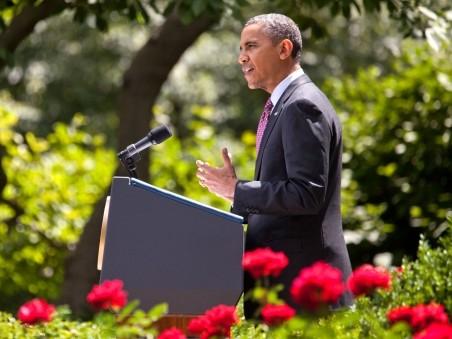WASHINGTON—After the final members of the congressional debt committee were announced last week, the committee now turns to the tough task of finding up to $1.5 trillion in cuts to the federal budget over the next decade. The committee must make its recommendations by Nov. 23.
Colloquially known as the Super Congress or the debt-reduction supercommittee, the Joint Select Committee on Deficit Reduction was created through the Budget Control Act of 2011; the debt compromise bill that was passed by Congress after weeks of political turmoil, and signed into law by President Obama earlier this month.
If they fail to come to an agreement, or if their recommendations fail to satisfy the rest of Congress, a sequestration of the budget—meaning across-the-board cuts to both domestic social programs and defense spending will be triggered, automatically enacting $1.2 billion worth of spending cuts over the next decade.
Congressional leaders appointed the 12 members of the committee last week. All members of the committee are established legislators and most of them hold top leadership positions within their caucuses.
Democratic and Republican committee members have both stated that the jobs issue and economic growth will be keys to solving the debt crisis. But the two sides have drastically different views about how to achieve growth.
For the conservative Republicans, who believe that a large public debt acts as a serious drag on economic growth, economic prosperity lies in cutting the size of government and balancing the budget.
“Job creation and growth depends squarely on our confidence in the economy. As long as we keep borrowing 42 cents on the dollar and sending the bill to our children and grandchildren, our debt will grow and confidence will continue to shrink,” said Rep. Jeb Hensarling, who is co-chair of the committee.
“The debt crisis is a legitimate threat to our nation’s future, and the American people cannot afford to wait any longer. Everyone can agree that we must stop spending money we don’t have, and the time to act is now.”
In contrast, Democrats are emphasizing their belief that the key to solving the debt and deficit problem is to solve the issue of the economy first.
“Putting America back to work is the best and most immediate way to reduce our deficit as we also develop and implement a balanced plan to establish long-term fiscal discipline and sustained economic growth,” said Congressman Chris Van Hollen in a statement after being appointed to the committee. “Our plan should put jobs first, sharpen America’s competitive edge, ensure health and retirement security, and require shared responsibility from those who have done so well even during these tough economic times.”
Read more...Debt Committee
Democrats, while realizing the need for serious debt reduction, also wish to preserve entitlements and social programs like Social Security and Medicare.
“We must achieve a ‘grand bargain’ that reduces the deficit by addressing our entire budget, while strengthening Medicare, Medicaid and Social Security,” said Pelosi.
Despite the seemingly vast chasm in their respective philosophies, both sides realize the necessity of finding significant cuts in order to balance the budget and reduce the debt and deficit, which economists say act as a drag on the economy in the long run. In addition, the $1.2 trillion across-the-board cuts is something that both sides wish to avoid.
For the Democrats, Sens. Patty Murray (D-Wash.), Max Baucus (D-Mont.), and John Kerry (D-Mass.) make up the Senate contingent. Murray is the fourth highest-ranking Democratic senator, while Baucus is chairman of the Senate Finance Committee. Kerry is well known as a former presidential candidate, and chairs the Senate Foreign Relations Committee, as well as the Senate Committee on Small Business and Entrepreneurship.
Reps. James Clyburn (D-S.C.), Xavier Becerra (D-Calif.), and Chris Van Hollen (D-Md.) were tapped by House Minority Leader Nancy Pelosi to represent House Democrats. Clyburn is the third highest-ranking Democrat in the House. Becerra is the fifth highest-ranking House Democrat as vice chairman of the House Democratic caucus and Van Hollen is the ranking minority member of the House Budget Committee.
Sens. Jon Kyl (R-Ariz.), Pat Toomey (R-Pa.), and Rob Portman (R-Ohio) will head up the Senate Republican delegation. Kyl, as Senate minority whip, is the No. 2 Republican in the Senate, and was recently included in Time Magazine’s 100 Most Influential People of 2010.
Toomey is the junior senator from Pennsylvania and sits on the House Budget Committee, and was elected to the Senate last year with Tea Party support. Portman served under former President George W. Bush as director of the Office of Management and Budget (OMB) and as U.S. Trade representative.
Reps. Jeb Hensarling (R-Texas), Dave Camp, and Fred Upton, both from Michigan, will make up the House GOP delegation. Hensarling is the vice chairman of the House Banking Committee and was a proponent of the Cut, Cap, and Balance Bill that passed the House but died in the Senate last month. Camp is chairman of the Ways and Means Committee, and Upton chairs the House Committee on Energy and Commerce.



